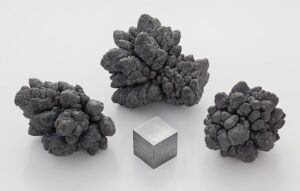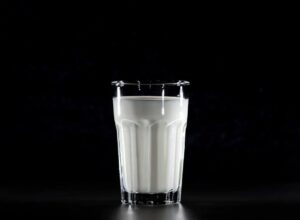
Supplies of lead and lead products to Ukraine in January-February 2025 increased 8.7 times to $1.228 million. In February alone, lead was imported for $647 thousand. At the same time, lead exports decreased by 23.4% to $1.346 million.
Lead is currently mainly used in the production of lead-acid batteries for the automotive industry. In addition, lead is used to make bullets and some alloys.

MediGroup becomes part of Finnish Mehiläinen in the largest deal on the private healthcare market in Central and Eastern Europe
Finnish medical group Mehiläinen acquires the largest private healthcare network in Serbia, MediGroup, in the largest private healthcare transaction in Central and Eastern Europe.
MediGroup, founded in 2013, comprises 13 clinics, three maternity hospitals, two laboratory centers and three laboratories across Serbia. The network provides a wide range of medical services, including diagnostics, outpatient and inpatient care.
Mehiläinen, a leading Finnish operator of medical services, is already present in the markets of Sweden, Germany and Latvia. The purchase of MediGroup opens up an opportunity for the company to strengthen its position in Southeastern Europe and increase patients’ access to high quality healthcare.
Mikko Vetterviri, Director of Mehiläinen International, said that the move is in line with the company’s strategy of international expansion and introduction of new technologies in medicine. He emphasized that the investment in the Serbian market is driven by its high growth potential and the growing demand for private healthcare.
Closing of the transaction is expected after regulatory approvals. In the future it is planned to modernize MediGroup’s medical centers, expand the range of medical services and introduce digital technologies, which are already used by Mehiläinen’s patients in other countries.
Source: https://t.me/relocationrs/737

The total expenditures of the leading domestic manufacturers of top-100 medicines on compensation of balances to distributors after the reduction of selling prices from March 1 exceeded UAH 601.7 million, according to the data obtained byInterfax-Ukraine from the participants of the pharmaceutical market.
In particular, Pharmak has paid UAH 150.7 mln for the balance of goods, which at the time of price reduction had already been delivered to pharmaceutical distributors and pharmacies, Darnitsa – UAH 107 mln, Kyiv Vitamin Plant (KVZ) – UAH 83 mln, Arteruim – UAH 78.08 mln, Kusum-Pharm – UAH 58.87 mln, Yuria-Pharm – UAH 43.6 mln, Interhim – UAH 28.45 mln, Borschagovsky Khimpharmzavod (BKhPZ) – UAH 26.04 mln, pharma firm Viola – UAH 2.46 mln.
The total net loss of the companies from price reduction exceeded UAH 1.741 bln.
According to participants of the pharmaceutical market, most of the rise in drug prices over the three military years was created by the pharmacy link. Thus, the manufacturer’s prices during the three years of war increased by 18-45%, while retail prices – by 79%, pharmacy markups in monetary terms increased by 125-340%.
At the same time, the market participants note that after the introduction of restrictions on marketing payments, a tendency to increase retail mark-ups by a number of pharmacy chains against the background of lower purchase prices started to be registered on the market. Thus, pharmacies raise mark-ups to the maximum allowed level without any objective reasons.
At the same time, commenting on the impact of price reductions on the development of the pharmacy network, pharmacy market operators note that the national health policy should take into account the optimal number of pharmacies, as well as population density, demand and geographical location. At the same time, the increase in the number of pharmacies in cities with a simultaneous shortage of staff is a systemic problem. Therefore, a certain optimization of networks, taking into account consumption and demand, can help to solve the staff shortage, reduce costs and improve efficiency.
However, pharma market participants expect regulators to update the mechanisms of transparent pricing and continue the reform. In particular, they are discussing mechanisms for price referral, rules for transparent marketing and regulatory price adjustments.
As reported, in February, Ukrainian President Volodymyr Zelensky enacted the decision of the National Security and Defense Council of Ukraine of February 12 on additional measures to ensure accessibility of medicines for Ukrainians. According to this decision, the government, manufacturers and pharmacy chains will determine a list of 100 drugs for which prices will be reduced by 30% from March 1. It also provides for the establishment of a ban on marketing and promotion services related to the sale of medicines to the end consumer from March 1 until the Cabinet of Ministers introduces a separate abstracting of wholesale prices for all medicines.
Fulfilling the decision of the National Security and Defense Council, domestic manufacturers of the most popular drugs signed a declaration to reduce prices for the 100 most popular drugs by 30% from March 1. Among the signatories, in particular, are the Association of Producers of Medicines of Ukraine (APLU) and the pharmaceutical companies Pharmak, Borschagovsky Chemical Pharmzavod, Darnitsa, Arterium Corporation, Kiev Vitamin Plant, Yuriya-Pharm, Interhim, Kusum Pharm, and Viola Pharmaceuticals.
Later, in March, the Ministry of Health received additional proposals to reduce the prices of 273 drugs from 26 manufacturers, represented in the top-100 most popular drugs, the prices of which have been reduced since March 1. The proposals for 273 drugs were submitted by Pharma Start (Acipo company), Valartin Pharma, Astrafarm, Biopharma Plasma, and Infusion, “Pharmaceutical Firm “Zdorovye”, Pharmfirm “Viola”, JSC “Lekhim”, PJSC “Tekhnolog”, NPF “Microkhim” LLC, “Novopharm-Biosintez”, “Ternopharm”, “Lubnypharm”, “Pharmatrade”.
Appendix: Financial performance of nine manufacturers: balance of costs and expectations (in UAH mln)

Source: Interfax-Ukraine

In March 2025, the National Health Service of Ukraine (NHSU) paid UAH 13.517 billion to medical institutions providing primary and specialized medical care under the Medical Guarantee Program.
According to the NHSU, in particular, it paid UAH 878.5 million for emergency medical care, UAH 1.896 billion for primary medical care, and UAH 5.13 billion for the provision of priority services to specialized medical care facilities in February.
In addition, in March, the NHSU paid UAH 146.3 million to clinics under the package “Preparedness and provision of medical care to the population in the territory where hostilities are taking place” and UAH 808.6 million under the package “Transitional financial support for the provision of medical services by healthcare facilities”.
In March, the NHSU also paid UAH 526.8 million to pharmacies under the Affordable Medicines reimbursement program.
As reported, the state budget for 2025 provides more than UAH 175.5 billion for the Medical Guarantee Program (MGP). In particular, the MHG-2025 provides for the allocation of more than UAH 25 billion to pay for primary healthcare services, almost UAH 11 billion for emergency medical care, more than UAH 122 billion for specialized and palliative care, including more than UAH 6 billion for medical rehabilitation.
Tariffs for primary healthcare have been increased in the MTEF-2025. The basic capital rate will be UAH 844.4 instead of UAH 786.65 in 2024. In addition, the NHLP adds a rural coefficient of 1.1 to the base rate.
In addition, the NBU-2025 expands the reimbursement program “Affordable Medicines” – its budget will amount to UAH 6.6 billion.
The MTEF-2025 will cover 44 packages of healthcare services, including two new ones: radioisotope diagnostics for cancer diagnosis, including PET scans, as well as psychosocial and psychiatric care with the development of mental health centers and mobile multidisciplinary teams for adults and children.

In 2024, Dneprovsky Rifle Plant JSC (DnSZ, Dnipro) increased its consolidated net income by 29.3% compared to 2023, to UAH 2 billion 380 million.
According to the company’s consolidated financial report published on its website, net profit amounted to UAH 540.41 million (in line with previously published preliminary data), which is 5.2% more than in 2023.
The plant received UAH 647.75 million in profit from operating activities, up 5%, and gross profit increased by 11.6% to UAH 906.6 million.
Equity capital at the beginning of this year amounted to UAH 2 billion 474 million.
Over the year, the company reduced long-term liabilities by 22.3% to UAH 132.14 million, while current liabilities grew slightly (by 3.6%) to UAH 385.2 million.
DnSZ specializes in the production and sale of track superstructure elements: switches, blind crossings of various brands, and leveling devices. The products are sold mainly in Ukraine and exported to more than eight countries.
According to the report, as of the end of 2024, 20.154% of DnSZ shares are owned by Johnen Capital Limited (Cyprus), 5% is owned by Dnipro City Council member Zahid Krasnov, his sons Ruslan and Artem own 10% and 11.228% of shares, respectively, and another 18.2959% is owned by Israeli citizen Victoria Korban (sister of businessman Gennadiy Korban – IF-U).
Among the shareholders who own more than 5% of the shares of DnSZ JSC are also the Chairman of the Board Sergiy Taranenko (almost 10%), Iryna Taranenko (8.658%), and CFO Valery Kryachko (7.3%).
As of December 31, 2024, the company owned 100% of the capital of its subsidiary Dnipro S&C Trade (Switzerland).
In 2024, DnSZ’s unconsolidated profit increased by 6.7% to UAH 544.2 million, with revenue growing by 31% to UAH 2 billion 346 million.
The number of employees of the plant amounted to 622 people (6 more than in 2023).
As reported, the general meeting of shareholders of DnSZ JSC was scheduled for March 26, where, in particular, it was planned to distribute the net profit received – to allocate UAH 420 million to pay dividends at the rate of UAH 1.65 thousand per share. The minutes of the meeting have not yet been made public.

Milk prices in Ukraine continue to decline, as of March 25, the average purchase price of extra milk was 16.35 UAH/kg (excluding VAT), which is 0.45 UAH less than a month ago, according to the Association of Milk Producers (AMP).
According to the report, premium milk costs an average of 16.15 UAH/kg (excluding VAT), which is 0.50 UAH less than last month, and first-class milk costs 15.65 UAH/kg (excluding VAT, 0.35 UAH lower).
Accordingly, the weighted average price of the three grades is 16.20 UAH/kg (excluding VAT), which is 0.40 UAH less than a month ago.
“Purchase prices in Ukraine continued to move downward in the second half of March. However, the surplus of raw milk on the market, which puts pressure on purchase prices, decreased compared to the first half of March due to an increase in dairy exports from Ukraine and a certain increase in domestic consumption,” said AVM analyst Giorgi Kukhaleishvili.
He added that Ukrainian consumers are used to high prices for dairy products. Dairy processing plants stimulate consumption of dairy products in Ukraine by offering promotional discounts on their products in retail chains. The profitability of skimmed milk powder and butter production has improved, but deteriorated in the case of cheese and casein.
The industry association predicts that as of April 1, there may be a slight decrease in the price of raw milk in Ukraine by 0.2-0.3 UAH/kg.
In terms of euros, raw milk prices in Ukraine are higher than in New Zealand and South America, which actively export their dairy products to Asia and Africa and compete with Ukrainian and European exporters.
The outbreak of foot-and-mouth disease in Hungary and Slovakia and the likelihood of the disease spreading to Poland and Austria create prospects for further declines in purchase prices. Dairy processing companies in Poland and Austria export significant volumes of dairy products and, in the event of quarantine, they may switch to the production of long-term storage products, including butter or milk powder.
“These products are the key items of Ukrainian dairy exports. The accumulation of butter and milk powder in warehouses in Europe may lead to lower prices for similar products and raw milk in Ukraine. There is also a risk of foot-and-mouth disease spreading to Ukraine from neighboring countries, which could lead to significant losses for the dairy industry,” the AMP warned.
The association suggests that the abolition of the EU’s preferential customs regime for Ukrainian agricultural products, including dairy products, on June 5, 2025, may be a factor in reducing raw milk prices in Ukraine. The reinstatement of duties is likely to reduce the volume of dairy exports from Ukraine even to third countries, as they are shipped through the seaports of Poland and Romania.
“Most likely, the surplus of raw milk in Ukraine will increase, and purchase prices will go down in the event of a similar scenario,” the industry association summarized.